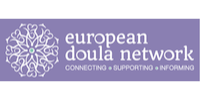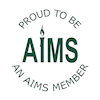“I can’t facilitate in person“ After 3 years of facilitating the Nurturing Birth Distance Course online and loving every second, this is what I told myself as I sat in front of the eager eyes of the new participants on my first Expansive ‘in-person’ course. All eyes were on me … and goodness I felt…
About Doulaing
The four pillars of doulaing
I want to share something with you that may shift your perspective if you have been holding back on training as a doula, or starting your doula business. I’ve had many conversations with people recently where they say something along the lines of I don’t know enough yet to be a doula or I’ve…
Nurturing the Doula: Doula Christmas Gifts
Looking to treat the doula in your life with something she’ll REALLY love this Christmas? Or are you a doula who is tricky to buy for? Want to get some inspiration of lovely gifts that you would truly welcome finding underneath your tree? Why not drop a hint to your loved ones by leaving this…
The 12 days of Christmas – On Call?
Doulaing at Christmas: How can doulas plan their holiday period? By Sam Sheppard “Boundaries… yeah, yeah” I hear you say, as you roll your eyes and take a big sigh. It’s all we harp on about, right? But what do they actually mean and how easy is it to actually implement them? As the festive…
Doulas Supporting Families With: Positive Induction Birth
By Jade Gordon My Top 5 Tips for a More Positive Induction Jade Gordon shares her top tips on having a positive induction of labour. Nurturing Birth’s series of specialist articles are written to help you to help your doulas clients, so do feel free to share these articles with your clients, and, of course,…
Doulas Supporting Families With: A Diagnosis of Down Syndrome
By Sarah Ojar When a family discovers that their baby has, or may have Down syndrome, it can be news that many people struggle to immediately accept. There is often so much negativity surrounding a diagnosis of Down syndrome during pregnancy that there is often an expectation from family, professionals and wider society that the…






